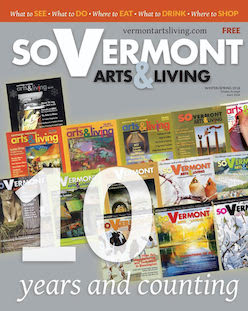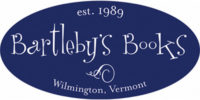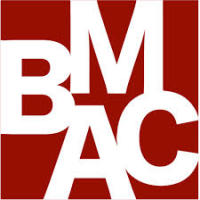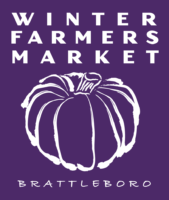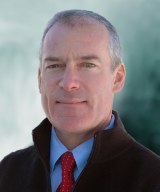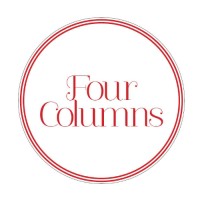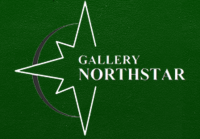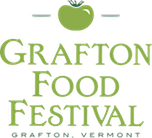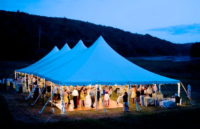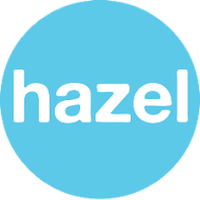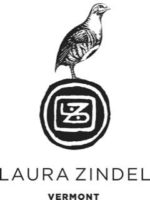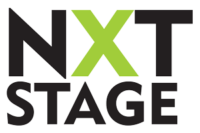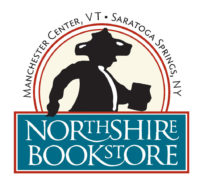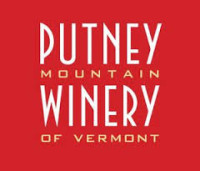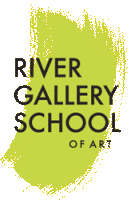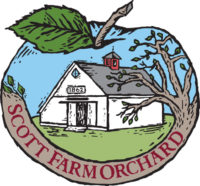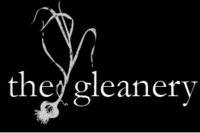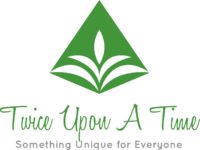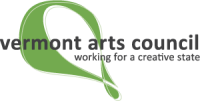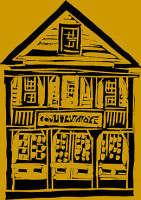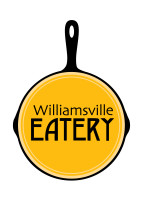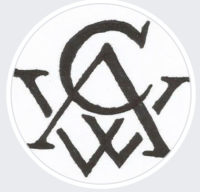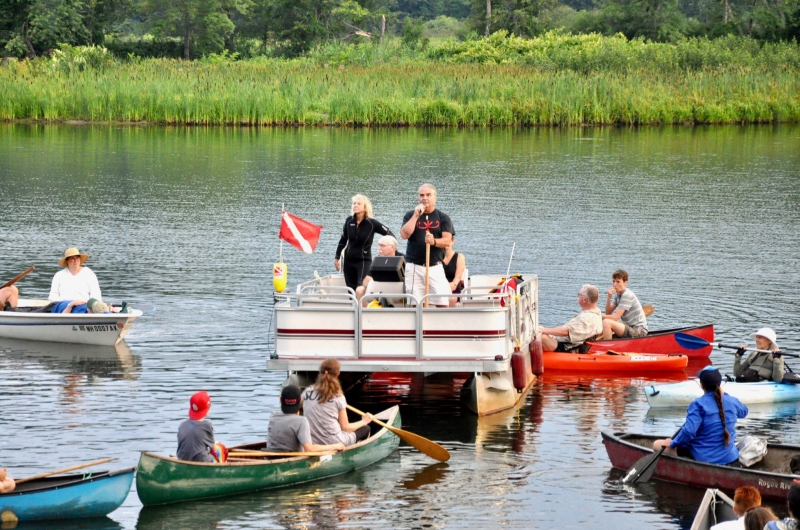
Marlboro College students in an interpretive dance on African American poet Boats gather at Words on the Water: Stories of Wantastegok, the West River, and Abenaki Presence in August. For a PDF of upcoming events, visit http://www.bit.ly/311R9Cd. Courtesy The Brattleboro Words Project
The Brattleboro Words Project has sought out and showcased the peoples, places, and history of words in and around Brattleboro through community-driven research, education, and audio storytelling since fall 2017. Now entering its final year of robust activity, the project will debut its final products at the end of 2020.
Much anticipated are a book, Brattleboro: A Print Town, on Brattleboro’s rich history of printing and publishing, and The Brattleboro Words Trail, self-guided and GPS-triggered walking, biking, and driving audio tours of more than 30 words-related historic sites around the region.
The Brattleboro Words Project is made possible by donors and local businesses such as Edward Jones Financial Advisors, Brattleboro Savings & Loan, and many others, all backed by a matching grant from the National Endowment for the Humanities. And it’s led by a dynamic team combining the efforts of five local organizations: Marlboro College, the Brattleboro Historical Society, Brattleboro Literary Festival, Write Action, and Brooks Memorial Library.
According to Project Director Lissa Weinmann, the partnership “deep-mapped” the region’s literary and cultural legacy to connect community to place, history, and human expression.
“We are building on the unique literary identity of the region, attracting tourists and deepening locals’ understanding of the places we work, live and play,” Weinmann told SOVAL.
She is a writer, producer and communications and marketing consultant, and the senior fellow at the World Policy Institute in New York. She also co-owns and operates 118 Elliot, an arts, education, and performance gallery in downtown Brattleboro.
Over the past two and a half years, the project has worked with local scholars, producers, artists, journalists, and classrooms to celebrate local figures such as H.P. Lovecraft and Daisy Turner, and places such as Round Mountain and Turner Hill in Grafton. It’s highlighted indigenous histories and the enduring Abenaki presence and equipped students, scholars, and citizens with the tools and methods of audio storytelling.
At press time there were more than 20 groups, including eight schools and 14 classrooms, researching sites throughout greater Brattleboro.
Community is at the heart of the project, both in its development and output. The public joins in through exhibits, workshops, and such gatherings as the monthly Roundtable Discussion Series.
Most recently The Brattleboro Words Project appeared at the 2019 Guilford Fair with MILES, its Mobile Interactive Literary Exhibition Space; and a reprisal of Lucy Speaks, an exhibit on the life of Guilford’s Lucy Terry Prince (c. 1732–1821), the author of the first known work of African American literature (the poem “Bars Fight”).
This summer the project held a special event—Words on the Water: Stories of Wantastegok, the West River, and Abenaki Presence—where, floating on the Retreat Meadows, researchers discussed Abeanki petroglyphs at the site while an audience of kayakers and others gathered on shore.
According to one of the presenters, Rich Holschuh, an indigenous cultural researcher and public liaison for the Elnu Abenaki Tribe, who also serves on the Vermont Commission for Native American Affairs, the project called out to him because “It is my conviction that unless we know where we are—as in having a distinct relationship with place—we are incomplete in the natural order of things, and without an adequate frame of reference.”
Holschuh, who is of Mi’kmaq and European heritage, added that “To know a place it is important to learn its stories. And not just the typical stories that have been told so many times that they’ve lost meaning, like a game of telephone. The Words Project aspires to recover the secret stories, the forgotten stories, the ancient stories. These rediscovered perspectives can help us to understand this place better—and, in turn, ourselves.”
Until its culminating exhibit at Brattleboro Museum & Art Center in fall 2020, the project will continue holding monthly events. This September’s roundtable brings a film screening and discussion on “The Revolt of Mother,” a story by 19th century author Mary E. Wilkins Freeman, and a special printmaking workshop at the River Gallery School.
In October, the Brattleboro Literary Festival will feature a number of Words Project events, including a Mary Wilkins Freeman-themed walking tour of downtown Brattleboro and a discussion with acclaimed authors who’ve written about Freeman and Rudyard Kipling, two historical giants of literature with deep Brattleboro ties.
Meanwhile, the project is partnering with the Vermont Folklife Center and Friends of Brooks Memorial Library on a series of fall workshops on audio storytelling, editing, and production. The public will get hands-on instruction from award-winning podcast producers.
All the better to tell stories of their own. —Desmond Peeples
For more information and to donate, visit http://www.brattleborowords.org.




